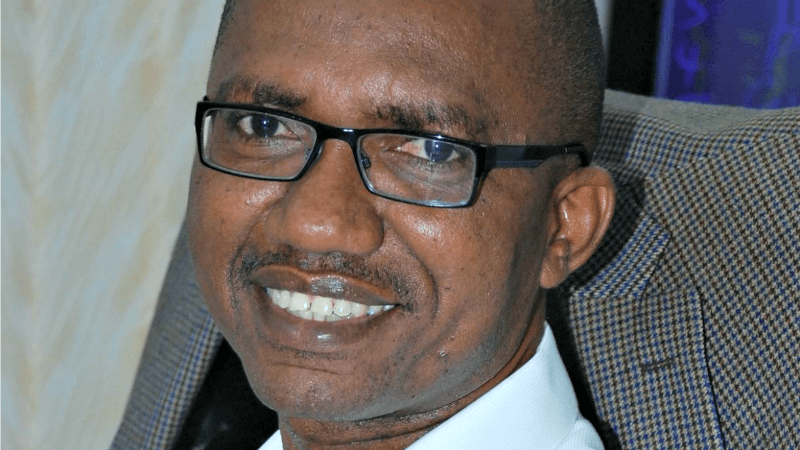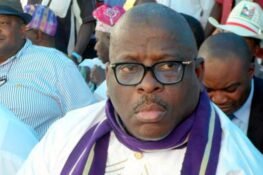This time three years ago, we were madly in love. After nearly five years of a scamming, loveless relationship we thought we needed a break badly – a change that would, hopefully, usher in a breathe of fresh air.
That was what Goodluck Jonathan promised in 2011, after Umaru Yar’Adua died in office and he stepped up to finish his tenure. Jonathan defied suggestions that he should not run and tried to assuage those who felt hurt with a promise that he would run for only one term.
Nigeria, Jonathan said, needed a breath of fresh air and no one was more qualified to bring it than himself – a poor, shoeless regular Joe, who had risen from grass to grace.
So, we fell in love with Jonathan and carried his message of simplicity and promise of fresh air wherever we went. But it was not long before we were reminded of what we knew. Whatever you may have been taught in nursery school, a promise is not a debt. In politics, promise is the currency of heartbreak.
Less than two years after he took over, Jonathan had surrendered his government to flatterers and crooks and by the time the shoeless avatar was finishing his first term, whatever damage the crooks had not done and which his own dangerous innocence had not compounded was finished off by his incompetence.
We were truly desperate for another love, for another prince to crown in our lives. Jonathan had to go.
We needed another marriage. Interestingly, in the midst of heartbreak, forlorn love often finds an excuse to invent one. In a sarcasm by former President Olusegun Obasanjo that summarised the mood of many voters at the time, it was “Anybody But Jonathan.”
Candidate Muhammadu Buhari as he then was, beckoned. He promised not fresh air, but change. He had tried to win our affection three times before but our memory of him 30 years earlier, of a loner and a mean-spirited soldier, kept us away from him and we thought he would go away quietly after tearing up in public the last time he lost.
But he did not go away. He returned for the fourth time, with the assurance that he was a changed man, a grossly misrepresented man, who is neither a loner nor a bigot. He only wanted to use his gifts of integrity and uprightness to straighten out the crooked Jonathan era.
That sounded like exactly what we needed. And what was more, with the siege and destruction by Boko Haram, we were living daily in fear for our lives. A nice guy alone would not do. We also needed a man of steel to crush the terrorists and reclaim parts of our land where Boko Haram flags were already flying.
February of 2015 was special. The election had been fixed for February 14, Valentine’s Day and Cupid could not have given us a more perfect date to escape our forlorn sheets and fall in love again in a bed of roses with the new prince charming. And this time, he came in all the stripes of modern and traditional fashion – from buttoned-up suit to agbada.
Three years ago, February was not just remade for romantic lovers, politics also borrowed from romance. As Segun Adeniyi reminded us in his column last week, we called February the Fe-Buhari month – our love month with Buhari.
Love is blind; in its sightlessness Buhari could do no wrong. At least not in February 2015. We likened him to Abraham Lincoln, one of America’s most revered founding fathers who tried and failed six times before he was elected president.
When we were afraid of the onslaught of Boko Haram, we coveted him as our coming Hercules, and when we were almost sure that the thieves would overwhelm us, we comforted ourselves with the song, masu gudu sugu du.
In the last three election cycles before the one of 2015, no presidential candidate had received less scrutiny as Buhari. In that moment of obsessive love, many – and that includes me – made excuses for Buhari even when he could not have invented one to save his own life.
That was three Februarys ago. Even when the election was later shifted to March, we simply rephrased our love affair this way, “even in March, we’ll still Fe-Buhari.” Even in March we would love Buhari.
Loves is blind, but it sees in hindsight. Three Februarys after our love affair started, I’m not sure how many flowers would be going to the Presidential Villa in this month of love.
Boko Haram is on the back foot, but violence is under new franchise. Herdsmen who appear to have multiple national identities but influential Nigerian sponsors keep terrorizing communities and innocents are dying in reprisal attacks.
Scores of young Nigerians are fleeing their country, preferring to die in the Mediterranean or be sold off as slaves than to stay. Yet three Februarys ago, the largest group of Fe-Buharians came from this crowd.
An old misery is back: petrol shortages. When we lit our love candles three Februarys ago, we could buy petrol at any filing station to keep them burning. At N87 per litre then, there was an artificial cap on the price that distorted the market and caused frequent disruptions in supply. Subsidy was the dirty word.
We had been lied to many times and betrayed about how the subsidy was being managed. When Buhari took office, not only did we encourage him to remove the price lid, against his own natural instinct, he had public support even when he eventually raised petrol prices by the highest margin in recent times.
Yet, this February, we’re looking like a country of jerry cans, with long queues in petrol stations that sell at the regulated price and no end in sight to the problem of shortages.
Love wears off and approval ratings fall after a few years in office, usually before the end of first term. It may well be that we’re victims of our own expectations or casualties of our obsessive love.
But has it been in vain? May be not. I repeat that love may be blind, yet it sees in hindsight. One lesson that we learned from our earlier failed marriage is that our commitment to the union is not automatic.
It depends on performance. And after four years, once the majority says that the marriage is over, then that’s it. Jonathan laid down that lesson and we’re grateful to him for it.
We’ve also learnt that love is vigilance and scrutiny. This time next February, even if the next prince charming wears a heart of gold on his sleeves (and Buhari may renew his vow, if he pleases), we will hold his feet to the fire, sparing nothing.
The next Valentine will be exactly what we bargained for. Our days of sightless love and free pass are over.
Email: azuishiekwene@gmail.com








